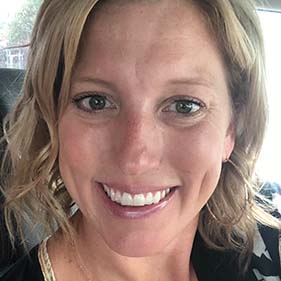MIND Institute offers COVID-19 vaccine for youngest kids, new booster for 12+
Clinic open to individuals with autism, 22q, Down syndrome and other neurodevelopmental disabilities
The UC Davis MIND Institute is expanding the services available at its COVID-19 vaccine clinic for children with neurodevelopmental disabilities. The clinic now offers COVID-19 shots for children ages 6 months and older, as well as the new Pfizer-BioNTech bivalent booster shot recently approved by the Food and Drug Administration (FDA).
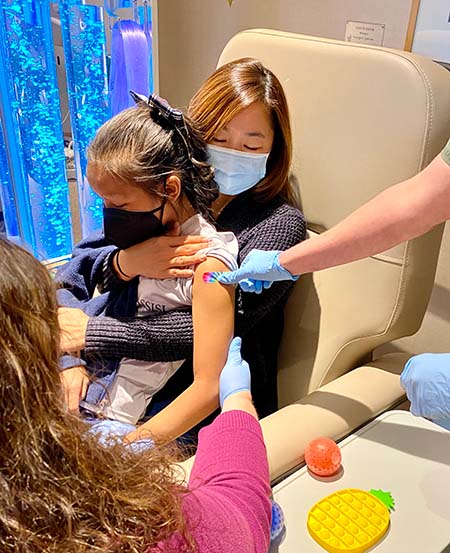
“Although rates of severe illness are lower in young children, vaccination remains important, as children can experience significant complications from COVID,” said Scott Akins, director of the Division of Developmental-Behavioral Pediatrics at UC Davis Health and director of clinical programs at the MIND Institute. “A positive COVID test also leads to missed school, missed work for caregivers and the risk of spreading the virus to others who are more vulnerable to severe illness.”
Meeting the needs of individuals with neurodevelopmental disabilities
For some children with autism, fragile X syndrome or 22q11.2 deletion syndrome, getting a shot can be a traumatic, challenging experience. The clinic is designed to avoid that. It is a sensory-friendly environment, including a comfortable chair and a large sensory machine that contains a calming tube of bubbles and optional lights and aromatherapy. Fidget toys like squeeze balls and pop-it toys are also available. The MIND Institute’s child life specialists reach out to each family before their visit. They find out the child’s needs and interests and ensure they have a custom coping plan in place for each patient.
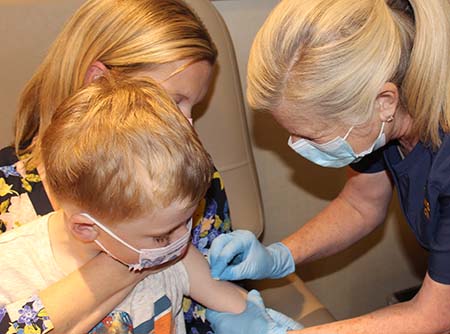
“It is important to provide customized care to these families because neurodivergent children need additional time, support and understanding in medical environments,” explained Katharine Harlan Owens, a patient navigator at the MIND Institute. “We allow for extended vaccination times and have a warm and dedicated staff that understands the importance of medical accommodations.”
Many families are concerned about getting the vaccine in a setting that may not be set up to accommodate children with neurodevelopmental disabilities, and that can be a hurdle to vaccination, noted Akins.
“They worry about sensory overload, providers who aren’t as familiar with caring for kids with autism or fragile X syndrome, and who may not have the flexibility to adapt to their needs. Many families appreciate being well-prepared for a procedure. That’s why we share photos and kid-friendly descriptions about each stage of the visit with them beforehand, so they’ll know what to expect,” Akins said.
It is important to provide customized care to these families because neurodivergent children need additional time, support and understanding in medical environments. We allow for extended vaccination times and have a warm and dedicated staff that understands the importance of medical accommodations.” —Katharine Harlan Owens, patient navigator
COVID-19 shots for kids under 5 and new Omicron booster available
Children ages 6 months to 5 years receive the Moderna vaccine, as recommended by the Centers for Disease Control and Prevention, which is a two-dose series. Children ages 5-12 receive the Pfizer two-dose vaccine, as well as booster shots when eligible. Children 12 and older who have already had the primary vaccine series are eligible for the newest Pfizer-BioNTech booster shot, which targets both the original coronavirus strain and two Omicron subvariants, BA.4 and BA.5.
The American Academy of Pediatrics recommends that children 6 months of age and older who are eligible for a COVID-19 vaccination get vaccinated to protect them against the virus. The protection provided by the vaccine decreases over time and that’s why the Centers for Disease Control and Prevention recommends a booster dose for all people 5 years of age and older.

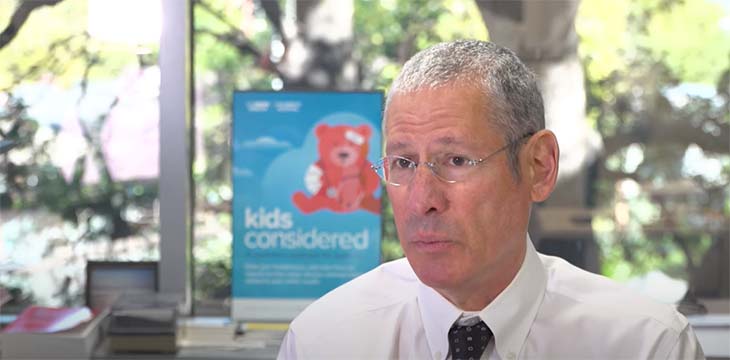
Since the clinic opened a little over a year ago, providers have successfully vaccinated 313 people. Only three individuals who made appointments were not able to be vaccinated – a success rate of over 99%.
A vaccine success story for three autistic siblings
The personalized care at the MIND Institute vaccine clinic made all the difference for Elizabeth Rutlin and her three autistic children, 11-year-old Xander and 9-year-old twins Aaron and Zachary. Rutlin drove them three hours each way from the San Jose area and stayed overnight in a hotel in order to visit the clinic earlier this year.
“It just overall was an incredible experience,” shared Rutlin. “It was incredibly helpful to have them reach out to me in advance to ask what the kids liked, and then having things that they were interested in available that could serve as good distractions and motivational rewards.”
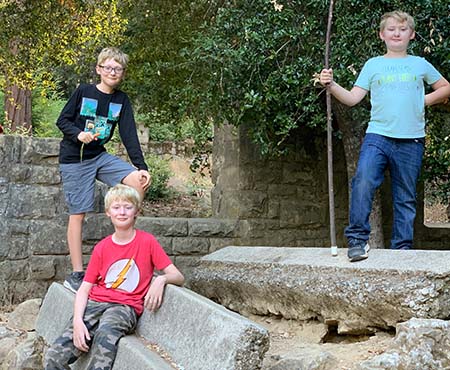
Xander had a previous negative medical experience and shots are a challenge for him.
“The last time we tried to get him a flu shot, he ran and hid in the doctor’s office. We had medical staff and two parents chasing him down for 30-40 minutes before we found him hiding under a table. That’s why I didn’t want to attempt to get him a shot in a typical vaccine clinic.”
At the MIND Institute, staff were able to build a relationship with Xander, and he was able to get the first COVID-19 shot on his own terms after about 2.5 hours. Rutlin returned to the MIND Institute with her kids for their second COVID shots as well.
“I will be forever grateful because they were so patient and accommodating,” Rutlin said.
Funding for the vaccine clinic comes in part through a grant from the Centers for Disease Control and Prevention to the MIND Institute’s Center for Excellence in Developmental Disabilities.
The clinic is open two Fridays a month, from 9 a.m. – 3 p.m. Upcoming dates are Sept. 30, Oct. 7, Oct. 28, Nov. 14 and Nov. 18. More dates are available on the clinic website.
To schedule a vaccine appointment, please call 916-703-5555.
The UC Davis MIND Institute in Sacramento, Calif. was founded in 1998 as a unique interdisciplinary research center where families, community leaders, researchers, clinicians and volunteers work together toward a common goal: researching causes, treatments and potential prevention of challenges associated with neurodevelopmental disabilities. The institute has major research efforts in autism, fragile X syndrome, chromosome 22q11.2 deletion syndrome, attention-deficit/hyperactivity disorder (ADHD) and Down syndrome. More information about the institute and its Distinguished Lecturer Series, including previous presentations in this series, is available on the Web at mindinstitute.ucdavis.edu.

